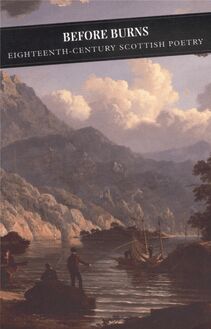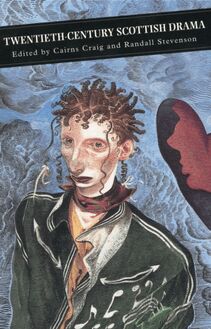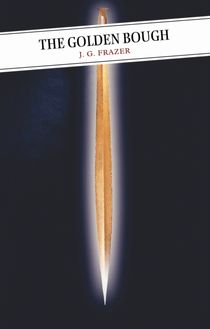-
 Univers
Univers
-
 Ebooks
Ebooks
-
 Livres audio
Livres audio
-
 Presse
Presse
-
 Podcasts
Podcasts
-
 BD
BD
-
 Documents
Documents
-
- Cours
- Révisions
- Ressources pédagogiques
- Sciences de l’éducation
- Manuels scolaires
- Langues
- Travaux de classe
- Annales de BEP
- Etudes supérieures
- Maternelle et primaire
- Fiches de lecture
- Orientation scolaire
- Méthodologie
- Corrigés de devoir
- Annales d’examens et concours
- Annales du bac
- Annales du brevet
- Rapports de stage
La lecture à portée de main
Vous pourrez modifier la taille du texte de cet ouvrage
Découvre YouScribe en t'inscrivant gratuitement
Je m'inscrisDécouvre YouScribe en t'inscrivant gratuitement
Je m'inscrisEn savoir plus
Vous pourrez modifier la taille du texte de cet ouvrage
En savoir plus

Description
Sujets
Informations
| Publié par | Canongate Books |
| Date de parution | 01 juillet 2010 |
| Nombre de lectures | 0 |
| EAN13 | 9781847678058 |
| Langue | English |
Informations légales : prix de location à la page 0,0400€. Cette information est donnée uniquement à titre indicatif conformément à la législation en vigueur.
Extrait
Contents
Introduction
Dedication
Summary of ‘Kidnapped’
PART ONE. THE LORD ADVOCATE
1. A beggar on horseback
2. The Highland Writer
3. I go to Pilrig
4. Lord Advocate Prestongrange
5. In the Advocate’s house
6. Umquile the Master of Lovat
7. I make a fault in honour
8. The bravo
9. The heather on fire
10. The red-headed man
11. The wood by Silvermills
12. On the march again with Alan
13. Gillane sands
14. The Bass
15. Black Andie’s tale of Tod Lapraik
16. The missing witness
17. The memorial
18. The Tee’d Ball
19. I am much in the hands of the ladies.
20. I continue to move in good society.
PART TWO. FATHER AND DAUGHTER
21. The voyage into Holland
22. Helvoetsluys
23. Travels in Holland
24. Full story of a copy of Heineccius
25. The return of James More
26. The threesome
27. A twosome
28. In which I am left alone
29. We meet in Dunkirk
30. The letter from the ship
Conclusion
Glossary
Introduction
David Balfour was first introduced to the world in Robert Louis Stevenson’s novel Kidnapped , published in 1886. The five years that passed before Stevenson wrote again about his hero took him a great distance from the country of his and David’s origin. In 1887 he left Scotland and would never return. When he next took up the narrative of David’s adventures, which he had always intended to do, he was in the South Pacific, thousands of miles away from the sights and sounds he brought to life in the pages of Catriona .
Both novels are dedicated to Stevenson’s close friend Charles Baxter, an Edinburgh lawyer. ‘You are still … in the venerable city which I must always think of as my home,’ he wrote, referring to Edinburgh. ‘And I have come so far; and the sights and thoughts of my youth pursue me.’ The action of Catriona takes David Balfour to the Bass Rock, back to the Highlands, territory of much of Kidnapped , and across to the Low Countries. But the evocation of Edinburgh remains one of the novel’s most distinctive features. The sense of the city seems to have haunted Stevenson’s consciousness, and his memory reconstructs it with a clarity that is both visual and psychological.
David is a country boy, and does not much care for the ‘old, black city’, though he finds it an exciting place. But in fact his cautious and sceptical response is as illuminating as the more subjective account Stevenson gives in his Edin burgh: Picturesque Notes . Stevenson transports his own profound knowledge and understanding of the city one hundred years into the past, for he is describing the Edinburgh of the 1750s, in the years following the Jacobite Rising. It is a city of crude violence and mistrust and superstition, as well as sophistication, commerce and respectability. The tensions and contrasts that David encounters contribute essentially to the novel’s ambience.
In Kidnapped Stevenson left David on the brink of a new life. In Catriona David enters that life, yet cannot abandon entirely his encounter with the Highlands and the influence of his exuberant Jacobite friend Alan Breck. The episode of the killing of the Red Fox, almost incidental in Kidnapped (though it puts the brand of outlaw on David), leaps into the foreground, and tests both the character and the morality of David. Stevenson was far too intrigued by the incident, with its moral as well as its historical dimensions, to let it go. There is a kind of inevitability in the murder’s magnetic effect on David. His chance encounter with an unknown Highland girl combined with his loyalty to Alan makes it impossible for him to turn his back on the lingering aftermath of the Forty-Five.
David’s meeting with Catriona captivates him at once, and is in effect the start of two stories. The one, in his anxiety for Alan and in pursuit of justice, takes him through the risks and intricacies of the law and politics. It has him crisscrossing Edinburgh and its environs, giving Stevenson the opportunity to fill in his picture of the city. It leads him to the East Lothian coast and imprisonment on the Bass Rock, followed by a hazardous escape and his desperate ride to Inveraray and trial for the murder of the Red Fox. The second makes him the protector of the destitute Catriona, follows his fortunes in Holland as student and lover, and brings him back to take up residence in his rightful home, the House of Shaws.
In some ways the two stories sit uneasily together. The first explores the essential dilemma of David Balfour, as introduced by Kidnapped . The Highlands hold no magic for David, no romantic or heroic appeal. He is a Whig and a Protestant, and temperamentally as well as politically out of tune with both the Jacobites and the fabric of Highland life. Yet he is loyal and conscientious, and recognizes the passion and principles of both Catriona and Alan even though he finds it difficult to respond to them in a way they understand. David’s dilemma lies in the fact that he is a man of reason, and knows how to conduct himself as such. But he is also a man of feeling, and there he is vulnerable and lacking in confidence. That vulnerability saves him from being a prig, but it does not increase his self-awareness.
David’s problem is brilliantly summed up by the Inveraray episode. David, who in Kidnapped witnessed the Appin murder, feels impelled to bear witness to prevent a miscarriage of justice. Yet by telling the truth he will throw suspicion on Alan Breck and expose the father of the woman he loves. With sharply-focused yet delicate irony Stevenson rescues his hero from this conflict between conscience and self-interest by interposing a father-figure, the influential and shrewd Prestongrange, who persuades David that nothing he can say will influence events. David, who has shown considerable courage in getting himself to the trial, does not resist this persuasion. ‘I came away, vastly pleased to have my peace made, yet a little concerned in conscience; nor could I help wondering, as I went back, whether, perhaps, I had not been a scruple too good-natured. But there was the fact, that this was a man who might have been my father, an able man, a great dignitary, and one that in the hour of my need, had reached a hand to my assistance.’ Just as in Kid napped David had returned with relief to the world of solid houses, authority and order, so in Catriona he turns away from Highland disorder and impenetrability. Prestongrange represents the world that he admires, to which he aspires. To attain this world he has to say goodbye to Highland adventures, even if he can’t quite ever say goodbye to Alan Breck.
So, in a sense, the ride to Inveraray is a diversion, though it follows so readily from Kidnapped . The route that David takes leads him instead to a lowland adventure, in Holland, with Catriona Drummond, whom he befriends, protects and falls in love with. Stevenson clearly wanted to expand and develop the scope of David’s actions, though it is an essential part of his character that he does not change significantly. He also wanted to write a love story, which he had not done before. The only female character of any substance who features in his fiction up to the writing of Catriona is Alison Graeme in The Master of Ballantrae (1889), but although she is a pivot for the rivalry of the brothers James and Henry she is subservient to it. Catriona is at the forefront of at least part of the novel that bears her name.
Stevenson was inhibited in writing about relations between men and women, for he felt that in order to do so honestly entailed exploring sexuality and sexual behaviour. In the 1880s to tackle this with any frankness was difficult: the climate of opinion was against it. In Catriona he solves the problem. In a Victorian context it is a highly unconventional tale: a young girl and a young man share a home, the situation contained, but not defused, by innocence on the one hand and a highly developed sense of responsibility and respectability on the other. David sets out to be ‘wise for the pair of us’. Stevenson is able to describe an awakening sexuality without compromising either of his characters, for David is not only too prim he is also too bashful to confess his love, and in fact his wooing is done for him by Alan Breck.
Catriona and Alan have much in common; they share not only a Highland background but the same pride and touchiness. The Highland girl we meet first in Edinburgh, out of her element in the city streets, has a vulnerable dignity, and this is part of the attraction for David. But Stevenson does not build on that. In fact, the Catriona of the latter part of the novel is less self-possessed, less appealing in fact, less adult. The reason that Stevenson allowed his heroine to become more dependent and more of a child, once transported even further from her home, is not hard to find: a more sophisticated and mature young woman would have been only too aware of the impropriety of sharing lodgings with a young man. In those circumstances it would have been difficult for Stevenson to throw his two young people together and allow them to learn about each other.
Stevenson creates an intriguing situation, but he is not able to explore it fully, nor to draw it successfully into the main current of the story of David Balfour. What is crucial is that David cannot shake off his Highland adventure, that although at the end of Kidnapped he cheerfully embraces his future as a man of property with a profession, his link with the landless and the outlawed will never be severed. Catriona, of course, becomes part of this link. But at the end of the novel she has been placed firmly in the context of David’s new and sober existence, and it is Alan Breck, ‘a little, lean, lively gentleman in a scratch-wig and a wrap- rascal’, who visits late at night and has the Balfour family ‘drinking the king’s health across the water ’.
Catriona , though part of the novel takes place in Holland, is as much
-
 Univers
Univers
-
 Ebooks
Ebooks
-
 Livres audio
Livres audio
-
 Presse
Presse
-
 Podcasts
Podcasts
-
 BD
BD
-
 Documents
Documents
-
Jeunesse
-
Littérature
-
Ressources professionnelles
-
Santé et bien-être
-
Savoirs
-
Education
-
Loisirs et hobbies
-
Art, musique et cinéma
-
Actualité et débat de société
-
Jeunesse
-
Littérature
-
Ressources professionnelles
-
Santé et bien-être
-
Savoirs
-
Education
-
Loisirs et hobbies
-
Art, musique et cinéma
-
Actualité et débat de société
-
Actualités
-
Lifestyle
-
Presse jeunesse
-
Presse professionnelle
-
Pratique
-
Presse sportive
-
Presse internationale
-
Culture & Médias
-
Action et Aventures
-
Science-fiction et Fantasy
-
Société
-
Jeunesse
-
Littérature
-
Ressources professionnelles
-
Santé et bien-être
-
Savoirs
-
Education
-
Loisirs et hobbies
-
Art, musique et cinéma
-
Actualité et débat de société
- Cours
- Révisions
- Ressources pédagogiques
- Sciences de l’éducation
- Manuels scolaires
- Langues
- Travaux de classe
- Annales de BEP
- Etudes supérieures
- Maternelle et primaire
- Fiches de lecture
- Orientation scolaire
- Méthodologie
- Corrigés de devoir
- Annales d’examens et concours
- Annales du bac
- Annales du brevet
- Rapports de stage















